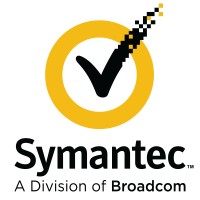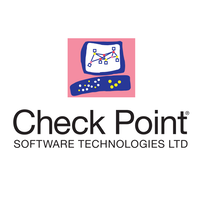With the current importance of data, protection against data breaches has become key to the success of an enterprise. One of the ways to protect data and endpoint devices is through the use of antivirus software.
What is Antivirus Software?
Malware, in the form of viruses, rapidly spreads when it infects a computer or a network. Antivirus software provides protection against spyware, trojans, worms, and rootkits as well as ransomware among others.
What Does Antivirus Software Do?
To mitigate the presence and impact of malware, antivirus software boosts the information security of an enterprise. Antivirus solutions help enterprises protect valuable data from threats such as hackers. The advancement of technology and the emergence of technologies such as the Internet of Things (IoT) have ensured that there are numerous heterogeneous endpoint devices. Resultantly, modern antivirus solutions protect diverse endpoint devices, as the diversity of these devices provides an opportunity for threat actors.
Antivirus tools also mitigate human naivety as people are often oblivious to cybersecurity best practices, while those who are aware of these best practices constantly need to update their knowledge. For instance, in an enterprise setting, where someone may download a file, assuming it’s safe because it looks safe and because of being prompted by or manipulated by the source, they put the enterprise’s whole network at risk. Antivirus solutions scan such programs to protect people from inadvertently taking such risks.
Also read: Best Data Recovery Software for Restoring Data 2021
How Does Antivirus Software Work?
Malware employs self-preservation methods such as mutation to avoid detection and elimination. Antivirus software needs to be ahead of these methods to protect data, a network, a system, or end devices. A most common method of malware detection is the use of file signatures to identify and detect malware.
Antivirus software can also carry out heuristic scans to identify malware even when it is riddled with extra code, while not being too hostile to avoid flagging legitimate software as malware. Antivirus software can also carry out sandbox detection, which executes programs in an isolated virtual environment to determine their safety.
Comparing the Best Antivirus Software for Enterprise Security
Most of the modern antivirus solutions featured here offer artificial intelligence (AI) and machine learning-powered features, use behavioral analysis, and carry out system isolation. Let’s compare them.
| Platform | Sandboxing | Dynamic Code Analysis | Automated Remediation | Rule-based Detection |
| End-user Endpoint Security |  |
 |
 |
 |
| CrowdStrike Falcon: Endpoint Protection |  |
 |
 |
 |
| Malwarebytes for Business |  |
 |
 |
 |
| Avast Business Antivirus Pro Plus |  |
 |
 |
 |
| SentinelOne Singularity |  |
 |
 |
 |
| Check Point Antivirus |  |
 |
 |
 |
End-user Endpoint Security

Symantec Endpoint Security goes beyond just antivirus software by providing a complete integrated endpoint security platform for the enterprise. Through a single-agent platform, Symantec Endpoint Security safeguards both mobile and traditional endpoint devices, whether on the cloud, on-premises, or a hybrid cloud. To optimize security decision-making, Symantec Endpoint Security uses AI to improve the efficiency of administrators.
Key Differentiators
- Intensive protection. Symantec Endpoint Security’s intensive protection enables granular tuning of the level of detection and blocking to obtain visibility into suspicious files and enhance protection.
- Deception. Symantec’s prevention approach involves the use of lures and baits such as fake files, web requests, and cache entries among others to expose threats, delay the attackers, and determine their intentions.
- Auto-managed policies. Symantec pairs advanced AI and machine learning (ML) to combine historical data on anomalies and compromise indicators to consistently adapt and evolve endpoint policy rules and keep them at par with the latest risk profile of an enterprise.
Con: It may be resource-intensive during scans.
CrowdStrike Falcon: Endpoint Protection

By unifying endpoint detection and response, next-generation antivirus and around-the-clock threat hunting service, CrowdStrike Falcon is a revolutionary product in endpoint protection. CrowdStrike delivers consistent breach prevention through a lightweight agent that does not need complex integrations, constant signature updates, or on-premises infrastructure. This makes CrowdStrike easy to operate and quick to deploy.
Key Differentiators
- Falcon Prevent. Falcon Endpoint Protection Pro combines technologies such as ML and AI to prevent threats such as ransomware and zero-day malware.
- Falcon X. Falcon X offers automated threat intelligence by combining human intelligence with automated analysis, allowing enterprises to stay ahead of threat actors. It carries out automated incident investigations, saving time and manpower required to carry out manual investigations. Falcon X also carries out 24/7 threat hunting.
- Real-time visibility. Falcon provides full attack context and visibility to unravel attacks using process trees that are easy to understand. These process trees contain threat intelligence data.
Con: The CrowdStrike console may seem congested.
Malwarebytes for Business

Malwarebytes is a popular cybersecurity company that offers smart and effective online privacy, security, and antivirus solutions to protect users from advanced threats. Malwarebytes for Business takes a proactive approach to protect enterprises from complex threats such as ransomware, which traditional antivirus and endpoint protection solutions struggle to mitigate. Malwarebytes for Business offers endpoint protection, detection, and response as well as endpoint protection, detection, and response for servers among other features.
Key Differentiators
- Ransomware protection. Malwarebytes Endpoint Detection and Response (EDR) employs behavioral-based technology that protects enterprises from ransomware and thoroughly remediates infections.
- Remote work. Malwarebytes for Business allows users to secure their remote workforce by protecting their passwords from brute force attacks.
- Endpoint Protection for Servers. Malwarebytes’ Endpoint Protection for Servers uses a lightweight agent to ensure it will not strain the productivity of users and will provide reliable conclusions through the use of the patented goodware model, AI, and ML.
- Endpoint Detection and Response for Servers. Endpoint Detection and Response for Servers continuously monitors suspicious activity, offers granular attack isolation, and activates file backups to roll back affected files in the event ransomware is detected.
Con: Poor optimization may cause high resource consumption.
Avast Business Antivirus Pro Plus

Aside from network security, Avast Business Antivirus Pro Plus includes antivirus, email, and server security along with VPN, firewall, and password manager to ensure enterprises are safe. Avast Business Antivirus Pro Plus offers proactive antivirus solutions to businesses to protect them from increasingly sophisticated threats like ransomware. It utilizes cloud-based analytics to enable a next-generation approach to endpoint security.
Key Differentiators
- Threat detection. Avast next-gen antivirus helps users effectively detect unknown threats through the use of cloud threat lab analysis and technologies such as ML and AI.
- System-centric approach. In contrast to a malware-centric approach, Avast next-gen antivirus uses a system-centric approach to examine endpoint processes in a holistic manner. By algorithmically blocking attackers’ malicious tools, it helps users enjoy the protection of higher efficacy than that offered by a malware-centric framework.
- Multi-functional lightweight agent. Through a multi-functional lightweight agent, Avast next-gen antivirus does not compromise system performance with its instant reaction to malware, offering users an improvement from resource-intensive agents that would typically impact the performance of a system through scans and recurring updates.
- Enhanced security in collaborative work environments. Avast next-gen antivirus for business servers simplifies remote work by letting teams collaborate without jeopardizing network security.
Con: Full scans may take longer than expected.
SentinelOne Singularity

SentinelOne Singularity is a cybersecurity solution that offers a single autonomous platform that presents AI-powered prevention, detection, response, and hunting spanning across endpoints, IoT devices, containers, and cloud workloads. SentinelOne provides enterprises with full visibility across the network to rapidly thwart all attacks at each stage of the lifecycle.
Key Differentiators
- End-to-end enterprise visibility. SentinelOne Singularity offers index-free, autonomous, and real-time threat ingestion and analysis to protect enterprises from blind spots and eliminate threats. SentinelOne’s threat ingestion and analysis support structured, semi-structured, and unstructured data.
- ActiveEDR. To expose malicious techniques and actions that manifest during targeted advanced persistent threat (APT) campaigns, SentinelOne’s ActiveEDR correlates heterogeneous data all through the enterprise stack. ActiveEDR autonomously responds to, tracks, and reverses the impact of cyber attacks, helping security teams effectively carry out a root-cause analysis.
- Automated resolution and response. With SentinelOne, enterprises can automate and orchestrate a unified response and remediation strategy across various domains to beat high-velocity threats in real time and avoid tedious scripting tasks.
- Built-in integrations. SentinelOne’s built-in integrations spare users the hassle and distractions of context switching by maximizing and layering trusted solutions across an enterprise’s security stack.
Cons: Uninstalling SentinelOne is cumbersome, and reporting could benefit from being more in-depth.
Check Point Antivirus

Check Point is a cyber security provider that offers users three pillars—Quantum, CloudGuard, and Harmony—to secure their enterprises. Quantum safeguards the network of an enterprise from sophisticated cyber attacks. CloudGuard gives enterprises not only visibility but also control over their workloads across any cloud while securing these clouds through a unified cloud-native platform. Harmony protects the devices, privacy, and data of remote users from cyber threats.
Key Differentiators
- Quantum IoT Protect. IoT Protect shields enterprises from on-device or IoT network cyber-attacks. It analyses the risk of any device it identifies on a network and enforces zero-trust policies to deny unauthorized access to and from operational technology and IoT devices.
- CloudGuard for Cloud Network Security. Through a virtual gateway, CloudGuard for Cloud Network Security offers enterprises advanced threat prevention and elastic and automated cloud network security to protect assets and data. It also offers unified management across all clouds.
- CloudGuard for Cloud Intelligence and Threat Hunting. Enterprises enjoy cloud-native threat security forensics powered by ML visualization that provides contexts of threats and anomalies in real time across all clouds.
- Harmony Endpoint. Harmony Endpoint safeguards enterprises and their remote workforce from zero-day exploits, ransomware, phishing, and other endpoint threats.
Con: It may impact system performance.
Choosing the Best Antivirus Software for Enterprise Security
To select the best antivirus software, it is crucial to understand the potential risks your enterprise faces. This gives direction on what kind of antivirus software fits within the scope of your search. For instance, if you only need to worry about malware, then an anti-malware solution will be ideal for you.
Next, you would need to compare the features of the solutions in consideration then compare the cost to identify which offers the most value to you. Finally, when in doubt, carry out a demo or free trial to better compare solutions if possible.
Read next: Best UTM Software of 2021: Unified Threat Management Companies
The post Best Antivirus Software for Enterprise Security 2021 appeared first on Enterprise Networking Planet.

